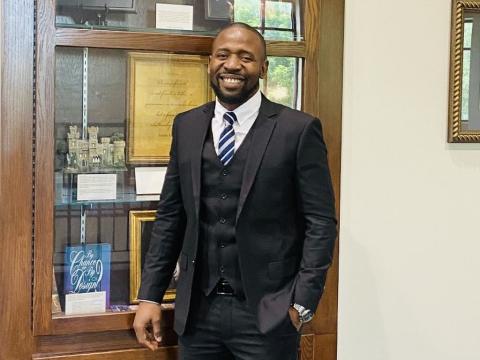By Alimamy Sultan Koroma
On Sunday 15 December 2024, the security forces in Sierra Leone did what was reminiscent of the dark days of yesteryears in its human rights history. Hundreds of innocent Sierra Leoneans from the Fullah Community were unlawfully rounded up and detained. This sad incident evoked painful memories of the 1970s when Fullahs were again routinely targeted by the state.
The regrettable incident has been roundly condemned and numerous public calls have been made demanding an apology from the government and for an independent investigation to hold accountable the architects of this heinous crime.
While an apology and a swift investigation are steps in the right direction, they do not deter the government from discriminating against its people in the future. In addition to an apology, which was eventually tendered by senior government officials including foreign minister Timothy Kabbah, and an investigation, why not consider pursuing remedies provided by the constitution for people who suffer discrimination at the hands of the state?
The Constitution of Sierra Leone – Act No 6 of 1991 – robustly protects citizens against any form of discrimination. It gives a broad definition to discrimination and defines it as "affording different treatment to different persons attributable wholly or mainly to their respective descriptions by race, tribe, sex, place of origin, political opinions, color or creed".
In the case of the Krio Descendants Union vs. Government of Sierra Leone, the Krios argued that the Provinces Lands Act 1960 which restricts people of Krio lineage from owning land in the provinces violated Section 27 of the Constitution. I see a similar situation here. Fullahs were targeted simply because of their tribe, and while the actions of the Guinean Authorities in illegally deporting hundreds of Sierra Leoneans are utterly abhorrent, there can be no justification for targeting the Fullahs. I believe that the government clearly violated Section 27 of the constitution.
Under Section 6 (2), the constitution behooves the government to "promote national integration and unity and discourage discrimination". It goes as far as providing remedies for people who have been discriminated against or are likely to be discriminated against. Anyone who has either been discriminated against or has reasons to believe that they will be discriminated against, can apply directly to the Supreme Court for redress (Sec. 28).
The Supreme Court, which has original jurisdiction over such matters may make "such order, issue such writs, and give such directions" appropriate to protect the right of that person (id.). The Fullah community should apply to the Supreme Court for a declaration that the government violated their rights when hundreds of their members were illegally detained on December 15. Additionally, they should seek an injunction restraining the security forces from targeting them in the future.
Perhaps more importantly, the constitution empowers parliament to make provision for rendering of financial assistance to victims of discrimination including the costs of hiring a lawyer, to bring the claim (Sec. 28 (5)). The Fullahs arrested and detained on December 15 suffered humiliation and psychological harm as well as lost millions of leones in businesses. They are definitely entitled to substantial compensation to be paid from state coffers. Hopefully, if a precedent is set, it will prevent a recurrence of this shameful event in the future.
Also worth mentioning is the jurisprudence of the African Court of Human Rights (of which Sierra Leone is a member) regarding governmental discrimination against its citizens. A landmark case is Kolie v. Nigeria (2015) in which the court ruled that the Nigerian Government violated the African Charter on Human and Peoples' Rights when it forcefully evicted the Ogoni people from their ancestral land. Thus, if the Fullah Community were to face roadblocks in bringing their claim in the Sierra Leone Supreme Court, they can seek redress in the African Court of Human Rights.
In conclusion, what happened on Sunday December 15 was an affront not just to the Fullahs but also to our collective conscience as a nation and the sacred text of our constitution. We have a vested interest in ensuring that it never happens again, and what better way to prevent a recurrence than invoking the remedies provided in the very constitution?
I hasten to say that this piece is not intended as legal advice. It is written solely for informational purposes.
Copyright © 2025 Politico Online








